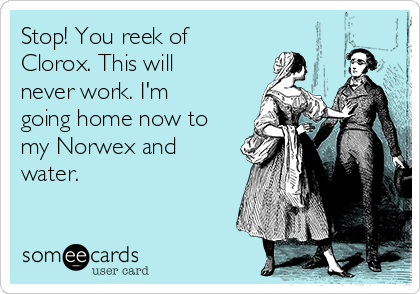HomeKnowledge CenterHow to Stay Awake at Work
A sleepless night can impact your work and personal life. How do you stay productive the day after a sleepless night?
Even though you may have had a sleepless night, you may still need to have a productive day.
Learning how to keep yourself awake following a night of lost sleep, requires you to learn which of the following methods your body best responds to.1
Good night, sleep tight!
Consider your usual night’s sleep: do you sleep like a rock, or do you wake up throughout the night? If you wake up a lot, make sure your sleeping environment is free of lights, sounds and changes in temperature. And limit use of smartphones, computers, and the TV before bedtime Digital devices like these can stimulate your mind and keep you awake instead of asleep.
Stay hydrated
While coffee or tea can help jumpstart your day, too much can dehydrate you or make you restless. A good way to stay awake without caffeine is to drink low or no calorie fluids, such as water or herbal tea. Fluids help your circulatory system and get your blood flowing. If you have a headache from too much caffeine, fluids can help relieve it.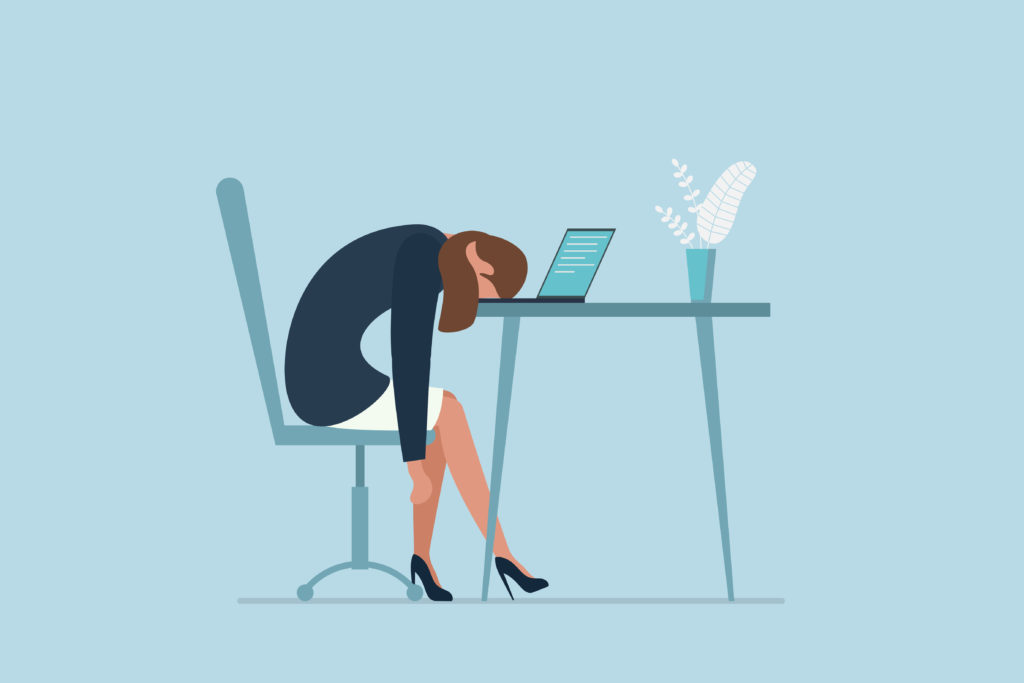
Splash your face with cold water
A splash of cold water over your face will draw your circulation upward, toward your head, temporarily renewing your energy, making you feel more awake.
Reduce your sugar intake
Eating sugar is often thought to be one of the best ways to stay awake. But it’s actually best to avoid sugar when you’re tired. It causes blood sugar spikes – which is a spurt of high energy followed by very low energy, which can leave you feeling sleepy.
Interrupt your work routine with regular breaks
If you’re experimenting with how to stay awake at work, try interrupting boring or uninteresting tasks by working for 25 minutes at a time, followed by a 5-minute break. The variety will help you stay awake longer, and may make you more productive. Get up and move around during your break to get your blood flowing.
Connect with a friend
One of the best ways to stay awake is to do so with others. Focus your mind on something else by talking with a friend or co-worker.
Focus your mind on something else by talking with a friend or co-worker.
Keep your space cool
A warm room can make you tired, and a cool room does the opposite! Crack a window for a refreshing breeze to keep your blood flowing and your energy level up.
Put on some tunes
Use music to help wake up your senses. It can also distract you and take your mind off feeling tired.
Take a walk
A walk can help bring blood flow to your muscles and wake them up. A change of scenery is also likely to reduce fatigue by inspiring new ideas and even sparking creativity.
Massage
You can give yourself a jolt of energy by lightly massaging select pressure points on your body. Key areas include: the back of your neck, between your thumb and index finger, behind your knees and just below the balls of your feet.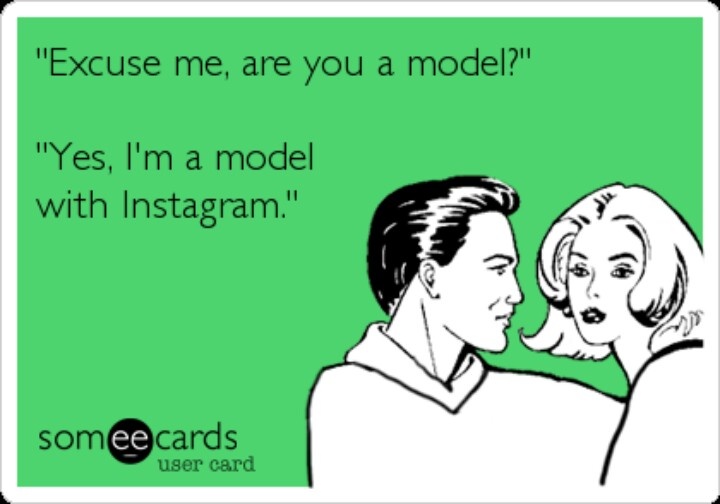
When you’re at work and need to stay awake, give these tips a try. Make sure to aim for quality rest, as a general rule. If your fatigue and sleeplessness continue talk to your health care provider for guidance.
Back to Knowledge Center
110 Tips to Stay Awake at Work without Coffee, Health Plus, March 29, 2021, https://www.mountelizabeth.com.sg/healthplus/article/10-tips-to-stay-awake-at-work-without-coffee
This article is general health information and not medical advice or services. You should consult your doctor for medical advice or services, including seeking advice prior to undertaking a new diet or exercise program.
If you’re able to stay home and relax for the day, being a little sleepy isn’t a big deal. But being tired at work can have significant consequences. You might miss deadlines or get behind on your workload. If this becomes a pattern, your job could be in jeopardy.
But being tired at work can have significant consequences. You might miss deadlines or get behind on your workload. If this becomes a pattern, your job could be in jeopardy.
Treating the underlying cause of daytime sleepiness — such as sleep apnea — can help improve your energy level and boost cognitive function. But even if you take steps to feel better, daytime sleepiness might not improve overnight.
Here’s how to manage daytime sleepiness at work.
If you’re feeling sluggish at work, a shot of caffeine might be the energy boost you need to get your job done.
Caffeine is a stimulant, meaning it increases activity in the brain and nervous system. It can improve your thinking ability and mental performance, and help you fight off sleepiness. Head over to the break room for a coffee, or take a short walk to a local cafe.
Be careful not to go overboard. Drinking too much caffeine can overstimulate you and make you jittery, which might affect your productivity level.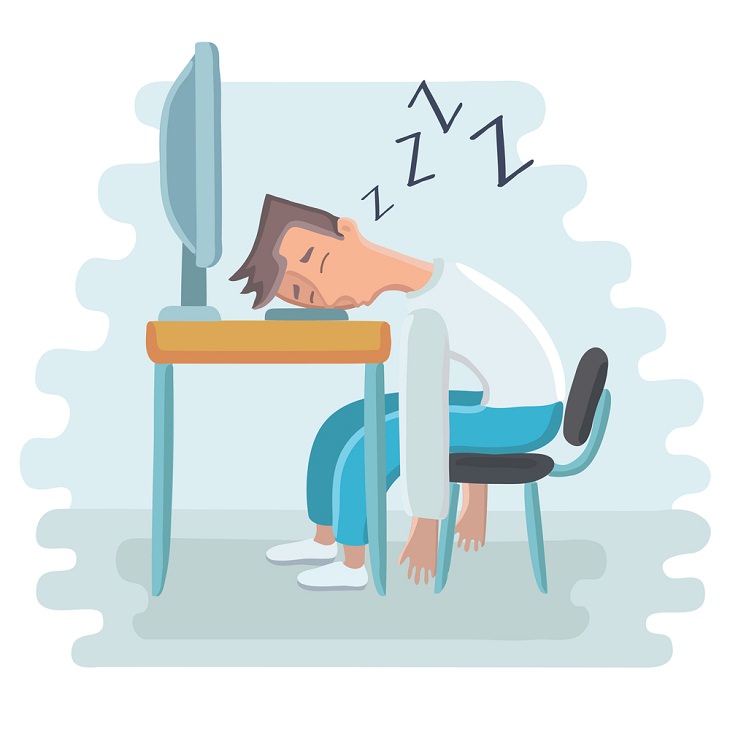
Sometimes, getting a little bit of shut-eye is the only way to get over daytime sleepiness. If you have to close your eyes, squeeze in a quick power nap on your lunch break.
If you have your own office, shut the door and lay your head on the desk. Or sit in your car and recline the seat. A 15 or 30-minute nap might give you enough energy to power through the day. Don’t forget to set your alarm clock or you may oversleep!
Sitting in one spot for too long can worsen daytime sleepiness. Periodically rising from your workstation and walking around gets your blood flowing. It can also help you stay to awake and concentrate on your work.
Granted, you probably can’t be away from your desk for too long. You may have to get creative and move at your desk. Maybe fidget or shake your leg while sitting in your chair. If you have your own office, pace the room while talking on the phone.
If you’re sleepy at work, having to do your job in silence can be a drag. You may feel as though you’ll fall asleep at any moment.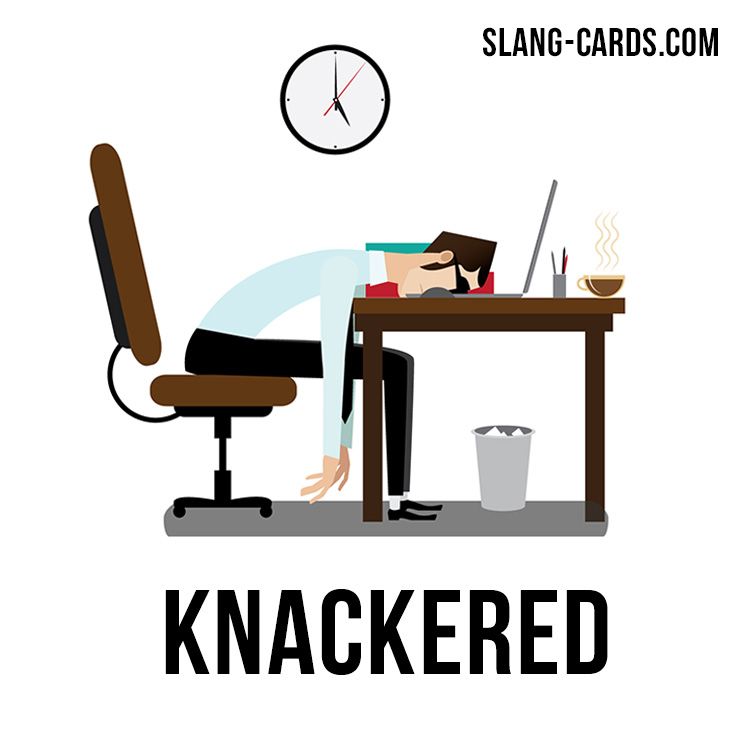 To wake up your brain, listen to upbeat music.
To wake up your brain, listen to upbeat music.
Check with your employer first for permission. Your boss might be OK with listening to music as long as it doesn’t affect your productivity. If you can’t turn on a radio, get permission to listen to music through earbuds — the more upbeat the music, the better.
If you deal with frequent daytime sleepiness, eating a heavy lunch could make it worse. Do your best to stay away from sugary snacks, sodas, or carbohydrates like white bread and white pasta.
Eat a light lunch to keep your energy up. You want to feel satisfied but not stuffed. As you pack your lunch, choose healthier sources of energy. This includes boiled eggs, chicken, berries, nuts, vegetables, and whole grains.
If you’re fortunate to work in a space with windows, open the shades and let in some natural light. Sunlight in your office can increase alertness and energy.
If you don’t have a window near your workspace, get permission to bring in a lightbox and position it near your desk.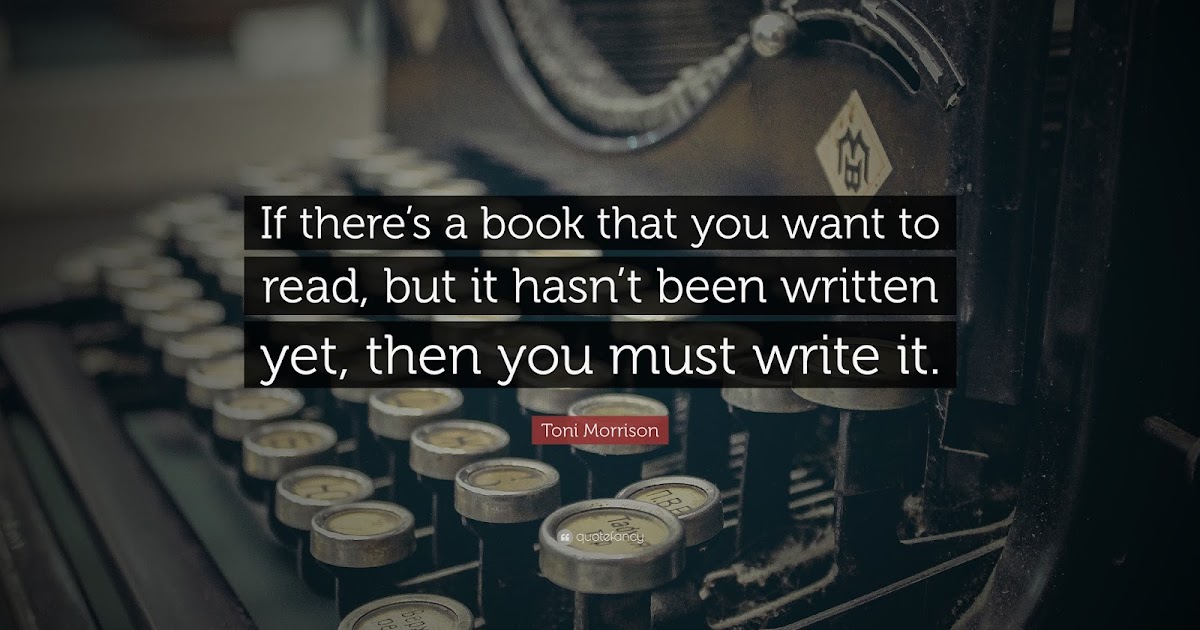 This emits a low level of UV light and helps regulate your wake cycle so you feel less sleepy.
This emits a low level of UV light and helps regulate your wake cycle so you feel less sleepy.
If you’re struggling to stay awake at work, go to the bathroom and splash cold water on your face. This quick and simple hack can reenergize you and provide a much-needed pick-me-up.
Step outside after you splash your face if it’s a breezy day. The cool air against your face can increase your alertness.
You might want to invest in a fan for your office space or desktop if you deal with daytime sleepiness.
When you’re feeling sleepy, point the fan in your direction and turn it on full blast. Just like the natural breeze outside, the cool air of the fan can increase your alertness.
Daytime sleepiness can be intensified by too much downtime. Depending on the nature of your job, you may have periods when you have fewer responsibilities.
Without much to do, you may start to feel even more tired. Ask your boss for some light responsibilities, if possible. You might be able to assist with overflow work.
Learning how to manage daytime sleepiness can keep you on your employer’s good side. When drowsiness hits, try a few of these hacks to get through the day. Rule out an underlying problem by visiting your doctor if your tiredness continues for longer than a few weeks.
Anna Sokolova
full of energy
Author profile
Even if you work sitting at the computer, this does not mean that by the end of the day you will not die of fatigue.
Fatigue appears not only from physical work. And not only because of the large number of cases. It may also indicate that you have not replenished the resources of the body, have distributed the load incorrectly, or do not see much point in what you are doing. Life in constant stress and work in emergency mode is harmful to health and leads to burnout. Let's talk about how to save energy.
Psychologists have a hypothesis about why mental work is so exhausting.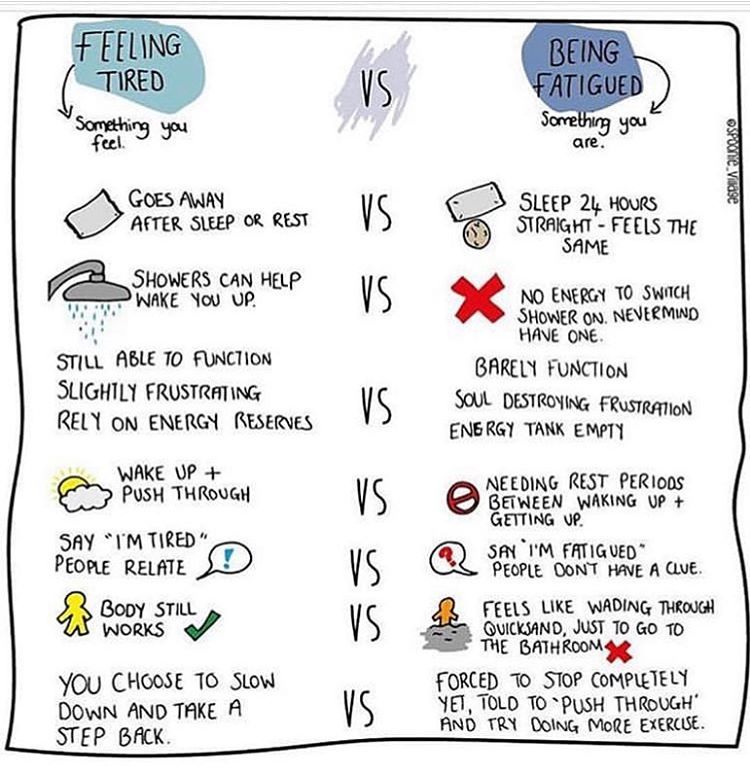 If a task doesn’t particularly excite us, the brain has to put in a lot of effort to focus on it. And there is a lot of interesting things around - from news and Internet discussions to new collections of your favorite brands. This constant struggle with temptations exhausts a person. But without it it is impossible - otherwise the work will not be done.
If a task doesn’t particularly excite us, the brain has to put in a lot of effort to focus on it. And there is a lot of interesting things around - from news and Internet discussions to new collections of your favorite brands. This constant struggle with temptations exhausts a person. But without it it is impossible - otherwise the work will not be done.
This version is partly confirmed by a study conducted several years ago in Canada. Scientists monitored the condition of 156 students for a week: they constantly asked what they were doing, how they felt, what they really wanted at the moment, how much effort they had to make in order not to follow these desires and continue to study. It turned out that the more temptations the students had to resist, the more tired they felt.
/no-willpower/
How can the weak-willed and lazy survive? Molecular biologist Irina Yakutenko answers
According to one of the authors of the study, psychologist Michael Inzlicht, this phenomenon has an evolutionary explanation.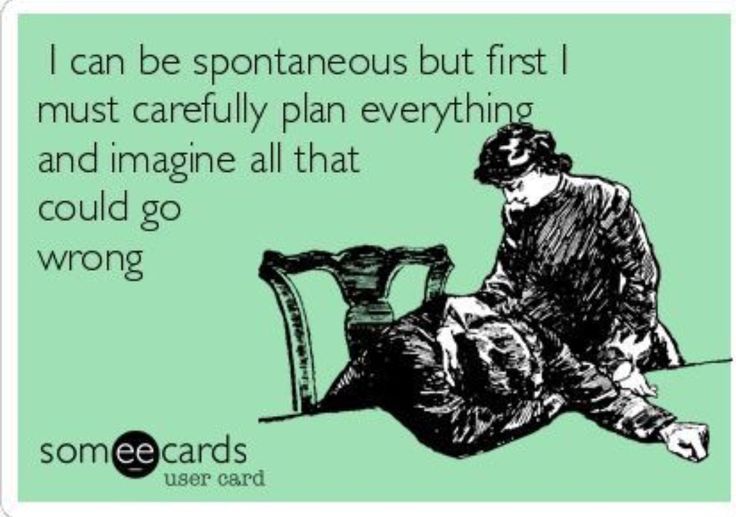 In order to survive, a person as a species all the time needs to do something: sleep, look for partners for procreation, get food, clothes - and so on ad infinitum. And if at some point he forgets about one of these tasks, then he simply will not survive. Therefore, the body has developed a biological mechanism that makes us switch from one to another. The psychological fatigue that we feel by the end of the working day is a signal that it is time to switch to another activity.
In order to survive, a person as a species all the time needs to do something: sleep, look for partners for procreation, get food, clothes - and so on ad infinitum. And if at some point he forgets about one of these tasks, then he simply will not survive. Therefore, the body has developed a biological mechanism that makes us switch from one to another. The psychological fatigue that we feel by the end of the working day is a signal that it is time to switch to another activity.
Tip 1
Increase your motivationIn 2019, British scientists published the results of a study in which they observed the behavior, physical and psychological state of 100 nurses during their 12-hour shift. And as a result, an important correlation was found: those nurses who were more involved in their work, knew that something depended on them, and received inner satisfaction in the process, were more energetic and less exhausted than the rest.
The explanation is simple: if we consider our work to be really important, then we are more motivated to do it and it is more difficult for us to get distracted.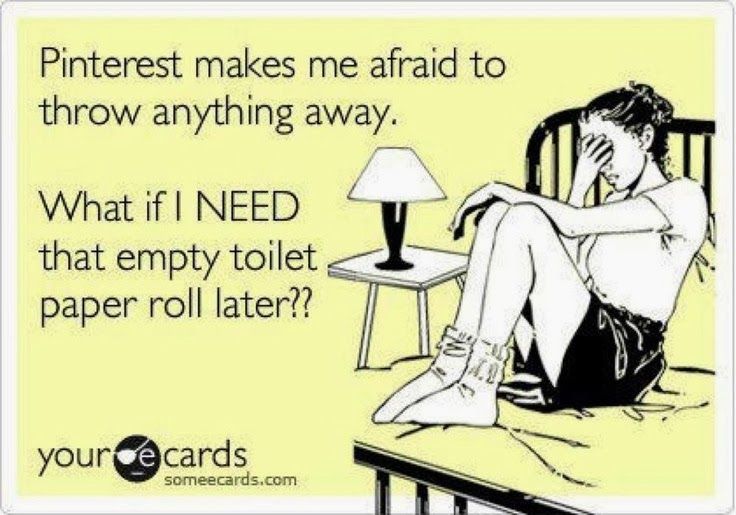 This means that the brain does not lose interest in it and gets less tired.
This means that the brain does not lose interest in it and gets less tired.
/hate-work/
Why people don't quit jobs they hate
To increase your motivation, try this exercise: at the end of each working day, for a couple of minutes, reflect on how your work is useful for others. If helping others is not part of your duties, remember that work allows you to pay for housing, feed and clothe loved ones, and financially support older relatives.
This simple action will have a beneficial effect on more than just your motivation. According to research by psychologists Adam Grant and Sabine Sonnentag, people who are clearly aware of the impact their work has on others tend to be less distracted while doing it. And in general, they feel happier and more satisfied with life.
Tip 2
Don't get distracted too often The human brain is not a computer. It's not designed for multitasking. Therefore, when the brain has to do several things at the same time, it spends too many resources. And as a result, he gets more tired and starts making more mistakes.
And as a result, he gets more tired and starts making more mistakes.
How can I fix this?
 Open only the tabs you need in your browser. And when you're done with them, close them immediately. And even better, if there is a financial opportunity, use the laptop only for work - install only the applications necessary for the business and do not log in to social networks. For everything else, get another laptop.
Open only the tabs you need in your browser. And when you're done with them, close them immediately. And even better, if there is a financial opportunity, use the laptop only for work - install only the applications necessary for the business and do not log in to social networks. For everything else, get another laptop. /how-to-focus/
5 tips to quickly focus on work
Tip 3
Take BreaksResearch shows that several regular but short breaks throughout the day can be better for rejuvenation, cognition and stress reduction than one long one. In 2014, specialists from DeskTime, a developer of time tracking software, analyzed the data of many users and found out that the most efficient ones worked in cycles. They immersed themselves in tasks for 52 minutes, and then disconnected from tasks for 17 minutes.
These data correlate with the modern ideas of scientists about the basic cycle of rest - activity: at night, on average, the body goes through all five phases of sleep in 90 minutes, and during the day it experiences a peak of activity at the same time, followed by 15-20 minutes of decline.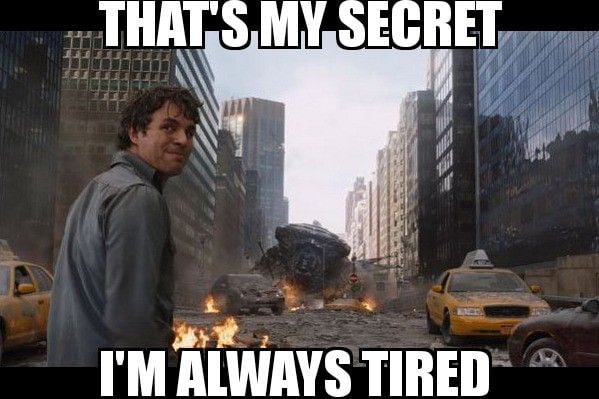 And it is better to spend them on rest.
And it is better to spend them on rest.
/chill-out/
How to rest: 5 tips
Things to do during a 15-minute break:
What not to do during mini-breaks? Check social networks and messengers. This can deprive the rest of the strength. According to researchers from the American Psychological Association, excessive use of gadgets increases stress levels and greatly spoils mood.
Tip 4
Start working lessIt often happens that fatigue at work is not due to psychological problems. But simply because you are overwhelmed. In this case, all the previous tips are unlikely to help you. There is only one way out: discuss with the manager.
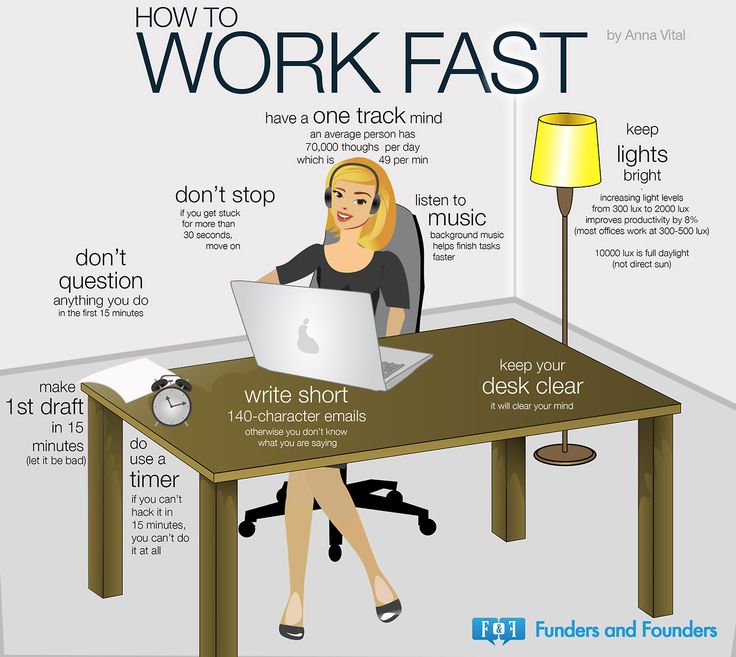 And do not be afraid that such behavior will negatively affect your career. Research tells us that bosses often don't pay attention to how often employees overwork, and do not consider it necessary to somehow reward it.
And do not be afraid that such behavior will negatively affect your career. Research tells us that bosses often don't pay attention to how often employees overwork, and do not consider it necessary to somehow reward it. /time-to-rest/
“I close my laptop and start living”: 7 ways to quickly switch from work to leisure
Tip 5
Take care of yourselfWhen the resources of the body are at zero, it is difficult to cope even with work that does not require serious mental effort, and fatigue sets in faster. Therefore, it is so important to regularly recover physically.
The rules are simple:
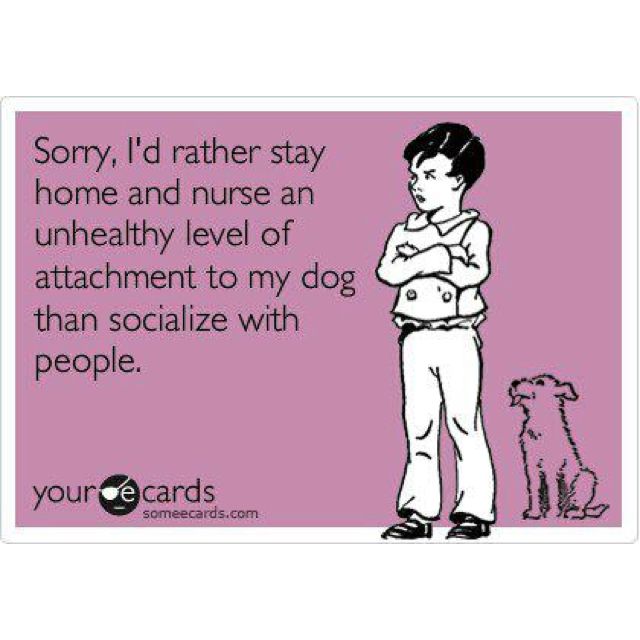 Studies show that an adult needs 7-9 hours of sleep a day. This is the minimum task. The maximum task is to observe sleep hygiene: even on weekends, go to bed and get up at the same time, do not exercise two hours before bedtime, do not eat or use gadgets. These basic rules will help make your sleep better, which means that in the morning you will wake up alert, full of energy and in a good mood.
Studies show that an adult needs 7-9 hours of sleep a day. This is the minimum task. The maximum task is to observe sleep hygiene: even on weekends, go to bed and get up at the same time, do not exercise two hours before bedtime, do not eat or use gadgets. These basic rules will help make your sleep better, which means that in the morning you will wake up alert, full of energy and in a good mood. 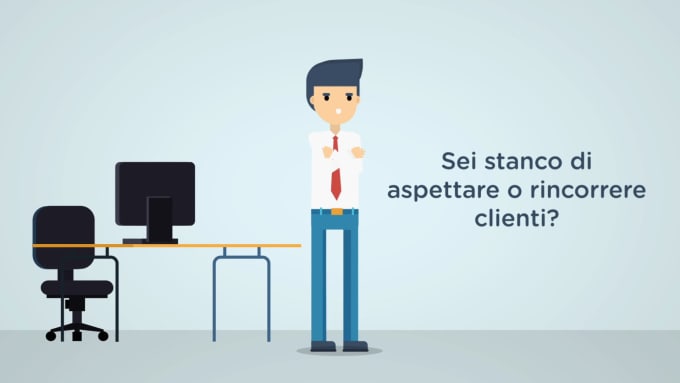
10 ways to unwind before bed
According to the World Health Organization, adults need 150-300 minutes of moderate exercise or 75-150 minutes of vigorous aerobic exercise to maintain good health.
/sport-every-day/
5 tips on how to make physical activity a part of life
Good afternoon, dear readers. How many times have you faced the problem that you stayed at work all day and did nothing in the end, and you were also tired? If you have had this, then this post is for you. The concept of productivity has been confidently with us for 10 years for sure. But has anyone wondered what it means to be productive? Is there a difference between "being busy" and "being productive"? I can confidently answer that I DO! Productivity is to use one hundred percent of your time.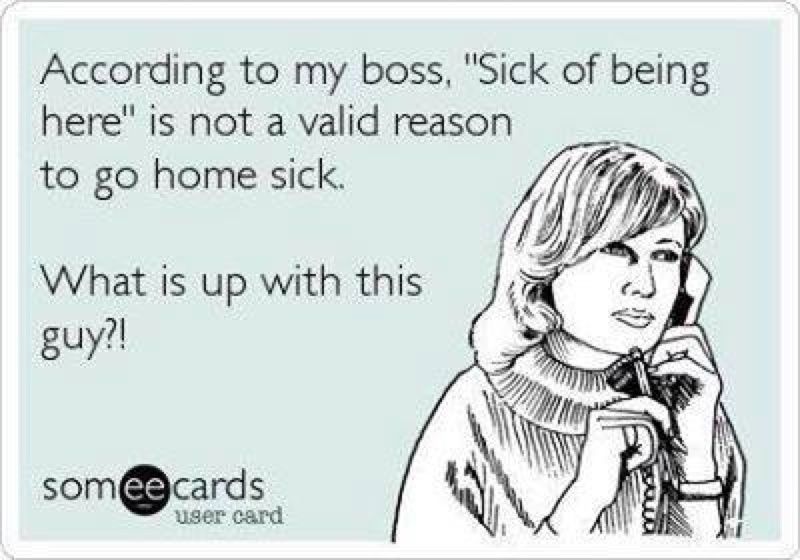 Employment is to fill your time one hundred percent (and not always necessary and useful things related to work). If in other words, then employment is to squeeze one whole orange has 20 milliliters of juice, and productivity is squeezing a liter of juice out of one orange. The personal productivity of each of us largely depends on the environment, habits, lifestyle, and even our hobbies. If you go in for sports in your free time, then you will be more productive, because sport fills a person with energy, despite the fact that it is very physically exhausting, but these are different types of human wear and tear. During brain activity, a person gets tired mentally, he immediately wants to take a walk or just change his place (who am I kidding? I want to lie down, just lie down), and during training, a person gets tired physically, but mentally fills up with working capacity and energy and is ready to “turn mountains”. In order to increase productivity, you may need to slightly change your lifestyle and lifestyle.
Employment is to fill your time one hundred percent (and not always necessary and useful things related to work). If in other words, then employment is to squeeze one whole orange has 20 milliliters of juice, and productivity is squeezing a liter of juice out of one orange. The personal productivity of each of us largely depends on the environment, habits, lifestyle, and even our hobbies. If you go in for sports in your free time, then you will be more productive, because sport fills a person with energy, despite the fact that it is very physically exhausting, but these are different types of human wear and tear. During brain activity, a person gets tired mentally, he immediately wants to take a walk or just change his place (who am I kidding? I want to lie down, just lie down), and during training, a person gets tired physically, but mentally fills up with working capacity and energy and is ready to “turn mountains”. In order to increase productivity, you may need to slightly change your lifestyle and lifestyle. But this is only the smallest thing that can be done. And so, the main points that will have a good effect on productivity:
But this is only the smallest thing that can be done. And so, the main points that will have a good effect on productivity:
And now, I would like to identify the main points that destroy productivity:
 " No, all the headlines, all the quotes in all publics scream to the right and to the left “there will be no tomorrow, there is only today and now”
" No, all the headlines, all the quotes in all publics scream to the right and to the left “there will be no tomorrow, there is only today and now” These are the main productivity killers in each of us, if you try to pacify them, you can reach a good level. But I will also give a couple of tips on how to still increase your productivity and squeeze a liter of juice out of one orange. To increase productivity, there are basic points that you should follow all the time, you can learn them like a mantra and read them in the morning. This is of course my jokes, but suddenly someone has real problems here. Let's go directly to them.
 The most important thing is that the tasks for the day be realistically doable in one day. For example, it is impossible to make an annual report in a day, therefore, based on the deadline, you need to plan out its chapters by day or week, depending on other deadlines and cases.
The most important thing is that the tasks for the day be realistically doable in one day. For example, it is impossible to make an annual report in a day, therefore, based on the deadline, you need to plan out its chapters by day or week, depending on other deadlines and cases.  Just work.
Just work. I really hope that my advice will help you stay productive not only at work, but also in life.